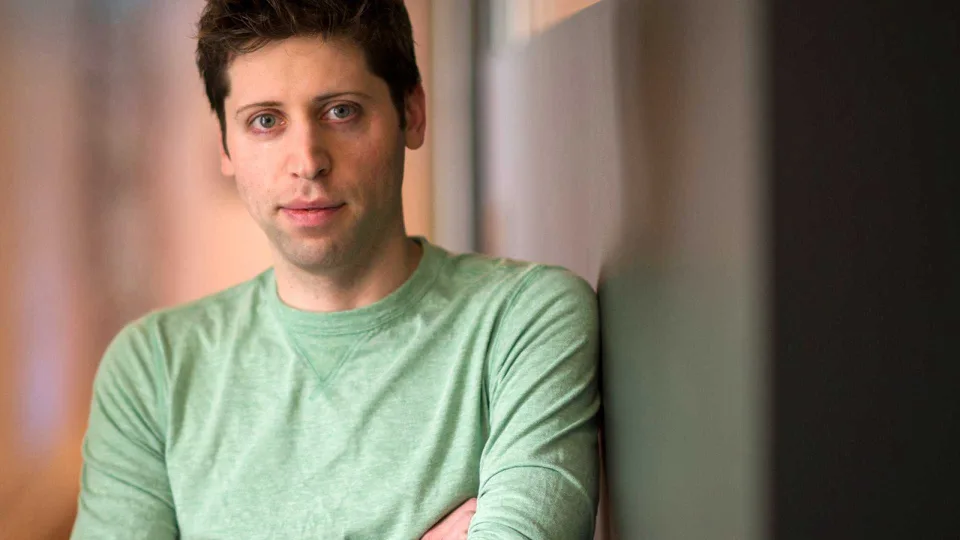If AI doesn’t cause human extinction in the next few years, and these days, who knows, it seems fair to postulate that its influence on marketing and marketers will be massive, even if exactly how is unknown. I recognize that this is not news in and of itself.

Sam Altman. CEO of OpenAI
But the launch of ChatGPT in November 2022 has sparked a speed and scale of conversation, experimentation and adoption, particularly of generative AI, the likes of which this industry has never seen before. For this reason, for the influence that generative AI has, can have and will have on the art, science and fundamental structure of marketing, for its influence on how the character and destiny of brands will be shaped, Sam Altman, CEO of OpenAI, is unofficially number one on Forbes’ 2023 World’s Most Influential CMO list.
The launch of his ChatGPT has done more to accelerate usage, breakthroughs, collaboration, conversation and the collective imagination of cultural and marketing applications of the technology at scale than anything before.
Precisely how generative AI will revolutionize marketing and/or replace marketers is a story yet to be written, and more than a few marketers think it’s all just another distraction from the important work of today.
That, once again, and with empirical evidence, the marketing community is confusing noise for signal, and is akin to a cat chasing a bouncing light around a room. I’ve thought this about more than a few “next big things” more than a few times over time. But this is different, and this is not the Metaverse or NFT conversation of yesteryear. On the contrary, it seems certain that today’s generative AI and its offspring will irrevocably change the inputs, outputs and exercise of CMO influence.
While we recognize that the broader potential impacts of this technology, should they happen, would make marketing issues (or anything else that presupposes the continuation of the human race) irrelevant, for the purpose of this article (and optimism), we I’ll stay in our lane.
And in this lane, we find that the alphabet soup of AI (GPT, LLM, ML, NLP, and so on) will evolve how and with (or without) CMOs deciding to reach and influence audiences. Search and SEO are just two parts of the marketing mix that are changing dramatically in real time, and both raise new and fundamental questions about where and how marketers will reach audiences, just months after the launch of ChatGPT and perhaps sooner than expected. While humanity may be safe, for marketers this could be an existential threat of its own.
Among other things now known and not known, technology’s ability to “optimize” and create content en masse and in a moment, in text, image, video, iambic pentameter, haiku or in a David Ogilvy-like voice, is part of the great (r)evolution, and is not without threat and influence on CMOs, the internal and external teams that support them and the work they do in the world.
What happens if, at scale, marketers start defaulting to that delivered by machines? Will the promise of hyper-personalization at scale look more like hyper-marketing at scale?
Will we become so focused on “efficiency” that we continue to ignore “effectiveness”? And if all marketers find themselves relying on essentially the same inputs and corpus of data (and the last decade of data mining and application suggests that we more or less are and do), how will brand X and business Y differentiate themselves from others? How will they matter more than others? The golden road to profitability is not paved with parity.
Perhaps the greatest irony and threat of AI’s rapidly evolving place in the marketing firmament is that the best marketing has always appealed to our humanity, individually and/or collectively. It makes us feel something that defies or reinforces reason. And it seems that unless (or until) machines become conscious, the empathy that has always been at the heart of the best and most influential marketing is equally threatened. For while AI can “learn” from trillions of data points about human belonging, identity, needs and desires, can it ever do more than approximate them?
In 1978, British journalist Bernard Levin said of the silicon chip that “it will transform everything except everything that matters. The rest will be up to us. And so it is again, and the question then is what will we do? Time and technology will tell. But for this year, Sam Altman’s influence on marketers and marketing (not to mention humanity), makes him the unofficial number one on this year’s list.

